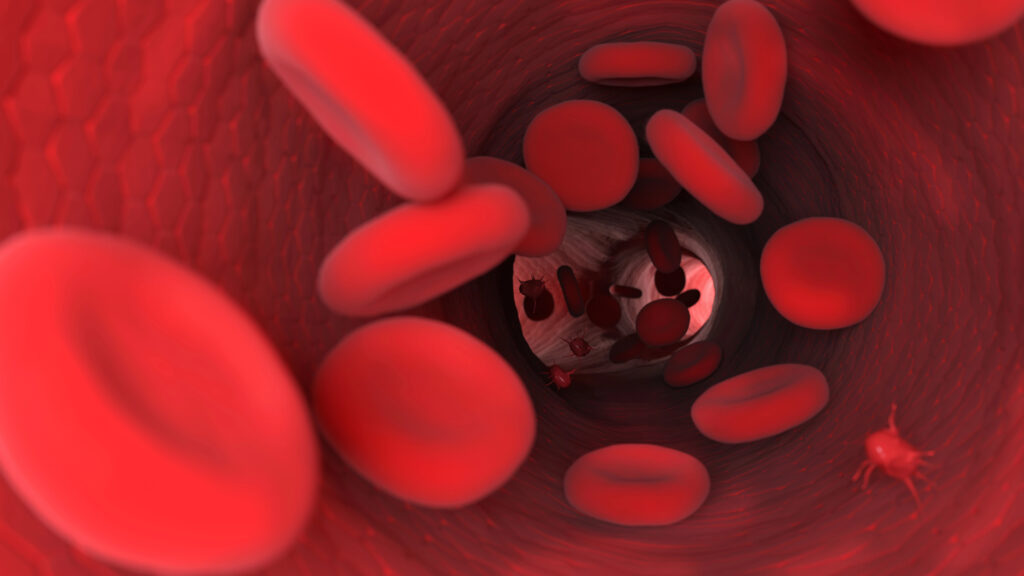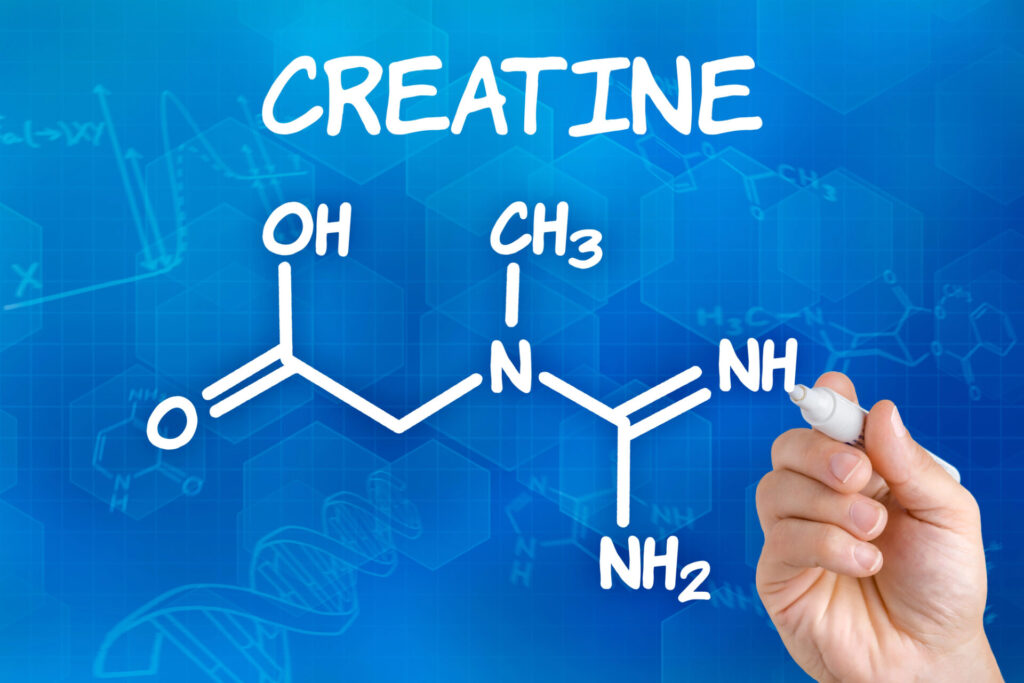Protecting endothelial function is central to a comprehensive cardiovascular care protocol—here’s how ubiquinol helps.
With the number of deaths from cardiovascular diseases on the rise, heart health remains a growing concern for practitioners. Over the past three decades, cardiovascular-related deaths have been steadily increasing, and in 2021, heart disease and stroke killed more Americans than all forms of cancer combined. Coronary artery disease accounts for one-third to one-half of all cardiovascular diseases, with impaired endothelial function known to be a primary causal factor. The good news: a targeted protocol that includes ubiquinol supplementation can protect endothelial health, lessen the likelihood of heart attack, stroke and other cardiovascular events and safeguard your patients’ hearts for years to come. Here’s what the science shows.1, 2, 3, 4
Enhancing endothelial health: the role of CoQ10
Endothelial function plays a central role in various aspects of cardiovascular health, maintaining vascular homeostasis, regulating blood pressure, preventing platelet aggregation and controlling inflammation. Dozens of studies implicate endothelial dysfunction in the development and progression of atherosclerosis, coronary artery disease, heart attack and stroke, and significantly higher rates of cardiovascular events.5, 6, 7, 8, 9, 10
Disruptions in endothelial function appear to result from reduced levels of nitric oxide production and bioavailability, leading to impaired vasodilation, increased blood pressure, inflammation in arterial walls, platelet aggregation and vessel permeability. Common risk factors include insulin resistance, obesity, elevated LDL and reduced HDL cholesterol, nicotine use and a family history of early cardiovascular disease. Mental stress, thought to be mediated through endothelin, is also associated with prolonged endothelial dysfunction, especially in women.11, 12, 13, 14, 15, 16
CoQ10 has long been recognized as a valuable component of overall cardiovascular protection, with a large body of research highlighting its therapeutic potential in hypertension, ischemic heart disease, heart failure, cardiomyopathies, dyslipidemia, obesity and a range of related risk factors and disorders. In studies, CoQ10 interventions are linked with significant improvements in endothelial function, better treatment outcomes in patients with heart failure and reduced mortality from cardiovascular causes. CoQ10 supplementation is critical for older patients, since deficiencies are common in chronic and age-related diseases, and in those taking statins.17, 18, 19, 20, 21, 22
Ubiquinol: the superior form of CoQ10
The reduced form of CoQ10, ubiquinol is an even more powerful ally in promoting endothelial function, decreasing inflammation and oxidative stress, and protecting other aspects of cardiovascular health.
Conventional CoQ10 supplements usually occur as ubiquinone, the oxidized form, which must be converted by the body to ubiquinol, the active form. But this process is slow and limited, and aging further hampers the body’s efficiency in absorbing and converting CoQ10. Ubiquinol supplements are identical to naturally occurring ubiquinol, requiring no conversion in the body to perform antioxidant functions. Compared to conventional CoQ10, ubiquinol is readily absorbed and significantly more bioavailable. In clinical trials, ubiquinol forms of CoQ10 were two to four times better absorbed than ubiquinone forms, resulting in markedly higher plasma CoQ10, with research demonstrating a five- to eight-fold increase in serum ubiquinol levels.23, 24, 25, 26, 27, 28, 29
Ubiquinol supports heart health through a variety of mechanisms. Mitochondria serve as the primary energy source for the heart muscle, fueling its high-energy needs and aiding physiological processes vital for cardiovascular wellness. Any disruptions in mitochondrial function directly contribute to the development of cardiovascular disease. CoQ10 plays a central role in the mitochondrial respiratory chain, required for 95 percent of cellular ATP. It’s also a crucial antioxidant in the inner mitochondrial membrane, a major site of free radical production. By supporting mitochondrial health, ubiquinol protects endothelial cells against senescence, potentially delaying vascular aging.30, 31, 32, 33
In its reduced form, ubiquinol is endowed with powerful antioxidant activity, shielding mitochondria and lipid membranes from oxidative stress, a key risk factor for cardiovascular disease. Ubiquinol has been shown to neutralize reactive oxygen species generated as a by-product of mitochondrial energy formation. Within the vascular system, ubiquinol is particularly potent, preventing LDL oxidation, protecting endothelial cells from oxidative stress and promoting vessel health. Beyond these mechanisms, ubiquinol also appears to affect cellular biochemistry by modulating gene expression and reducing inflammation, strongly implicated in endothelial dysfunction and the development and progression of arteriosclerosis and coronary artery disease.34, 35, 36, 37, 38, 39
Other research shows ubiquinol supplementation improved blood markers associated with heart health, including reduced serum GGT activity, lower serum NT-proBNP and CRP levels, all linked with a decreased risk for cardiovascular events and heart failure. Other studies point to ubiquinol’s benefits on endothelial function specifically. Clinical trials demonstrate the value of ubiquinol treatment for supporting vessel health in three ways: enhancing vasodilation, promoting nitric oxide production and protecting low-density lipoprotein (LDL) cholesterol from oxidation.40, 41, 42, 43, 44, 45
In a randomized, double-blind, single-center trial, ubiquinol supplementation significantly improved endothelial function as measured by flow-mediated dilation (FMD) compared with placebo. Participants received either ubiquinol at doses of 100mg or 200mg per day or placebo for eight weeks. The study found ubiquinol ameliorated dyslipidemia-related endothelial dysfunction, with improved serum nitrate and nitrite levels at both 100mg or 200mg per day and a higher LDL oxidation lag time at doses of 200mg per day. After eight weeks, ubiquinol treatment led to mean 1.3 percent FMD increase in both treated groups. According to the latest census report, each 1 percent point rise in FMD involves a notable 8 to 13 precent reduction in risk of cardiovascular events.46, 47
In studies of smaller populations, ubiquinol was shown to restore depleted CoQ10 and improve ejection fraction. A case series of 29 cardiac patients found participants who switched from CoQ10 to ubiquinol for a mean duration of 18 months demonstrated significantly higher levels of serum CoQ10, and average ejection fraction increased from 40.9 percent to 47.8 percent. In a trial of 50 patients, ubiquinol replenished plasma ubiquinol depleted during aortic valve replacement surgery, compared to placebo. And a crossover pilot study of 14 patients found 400mg of ubiquinol per day for three months improved peripheral endothelial function in participants with heart failure with reduced ejection fraction.48, 49, 50
Superior absorption is especially crucial for older patients. During aging, ubiquinol concentrations and antioxidant mechanisms naturally decline, endangering healthy cells and mitochondria and fueling common age-related conditions. Aging further diminishes the body’s ability to absorb and convert ubiquinone forms of CoQ10 into ubiquinol. Highly absorbable ubiquinone is also vital for replenishing CoQ10 depleted by statins. Clinical research validates the importance of maintaining ubiquinol during aging, and in older populations, optimal serum ubiquinol levels are associated not only with improved cardiovascular health, but also enhanced muscle strength, physical functioning and overall wellness.51, 52, 53, 54, 55
References:
- Roth GA et al. GBD-NHLBI-JACC Global Burden of Cardiovascular Diseases Writing Group. Global Burden of Cardiovascular Diseases and Risk Factors, 1990-2019: Update From the GBD 2019 Study. J Am Coll Cardiol. 2020 Dec 22;76(25):2982-3021.
- Martin SS et al. American Heart Association Council on Epidemiology and Prevention Statistics Committee and Stroke Statistics Subcommittee. 2024 Heart Disease and Stroke Statistics: A Report of US and Global Data From the American Heart Association. Circulation. 2024 Feb 20;149(8):e347-e913.
- National Center for Health Statistics. Multiple Cause of Death 2018–2022 on CDC WONDER Database. May 3, 2024.
- Tsao CW et al. Heart Disease and Stroke Statistics—2023 Update: A Report From the American Heart Association. Circulation. 2023;147:e93–e621.
- Gutiérrez E et al. Endothelial dysfunction over the course of coronary artery disease. Eur Heart J. 2013 Nov;34(41):3175-81.
- Endemann DH, Schiffrin EL. Endothelial dysfunction. J Am Soc Nephrol. 2004 Aug;15(8):1983-92.
- Hadi HA et al. Endothelial dysfunction: cardiovascular risk factors, therapy, and outcome. Vasc Health Risk Manag. 2005;1(3):183-98.
- Hassan W. The endothelium and endothelin: beyond vascular reactivity. Ann Saudi Med. 2006 Sep-Oct;26(5):343-5.
- Sinha A et al. Coronary microvascular disease: current concepts of pathophysiology, diagnosis and management. Cardiovasc Endocrinol Metab. 2020 Jul 16;10(1):22-30.
- Versari D et al. Endothelial dysfunction as a target for prevention of cardiovascular disease. Diabetes Care. 2009 Nov;32 Suppl 2(Suppl 2):S314-21.
- Widmer RJ, Lerman A. Endothelial dysfunction and cardiovascular disease. Glob Cardiol Sci Pract. 2014 Oct 16;2014(3):291-308.
- Yang Z et al. Impairment of vascular endothelial function following reperfusion therapy in patients with acute myocardial infarction. J Int Med Res. 2013;41(4):1074–1078.
- Shinozaki K et al. Coronary endothelial dysfunction in the insulin-resistant state is linked to abnormal pteridine metabolism and vascular oxidative stress. J Am Coll Cardiol. 2001;38(7):1821–1828.
- Spieker LE et al. Mental stress induces prolonged endothelial dysfunction via endothelin-A receptors. Circulation. 2002;105:2817.
- Ghiadoni L et al. Mental Stress Induces Transient Endothelial Dysfunction in Humans. Circulation. 2000;102(20):2473–2478.
- Martin E et al. Sex differences in vascular and endothelial responses to acute mental stress. Clin Auton Res. 2008;18(6):339–345.
- Zozina VI et al. Coenzyme Q10 in Cardiovascular and Metabolic Diseases: Current State of the Problem. Curr Cardiol Rev. 2018;14(3):164-174.
- Gao L et al. Effects of coenzyme Q10 on vascular endothelial function in humans: a meta-analysis of randomized controlled trials. Atherosclerosis. 2012 Apr;221(2):311-6.
- Di Lorenzo A et al. Clinical Evidence for Q10 Coenzyme Supplementation in Heart Failure: From Energetics to Functional Improvement. J Clin Med. 2020 Apr 27;9(5):1266.
- Rabanal-Ruiz Y et al. The Use of Coenzyme Q10 in Cardiovascular Diseases. Antioxidants (Basel). 2021 May 10;10(5):755.
- Raizner AE, Quiñones MA. Coenzyme Q10 for Patients With Cardiovascular Disease: JACC Focus Seminar. J Am Coll Cardiol. 2021 Feb 9;77(5):609-619.
- Gutierrez-Mariscal FM et al. Coenzyme Q10 and Cardiovascular Diseases. Antioxidants (Basel). 2021 Jun 3;10(6):906.
- Aaseth J et al. Coenzyme Q10 supplementation – In ageing and disease. Mech Ageing Dev. 2021; 197: 111521.
- Langsjoen PH, Langsjoen AM. Comparison study of plasma coenzyme Q10 levels in healthy subjects supplemented with ubiquinol versus ubiquinone. Clin Pharmacol Drug Dev 2014 Jan; 3(1):13-7.
- Pravst I et al. Comparative Bioavailability of Different Coenzyme Q10 Formulations in Healthy Elderly Individuals. Nutrients. 2020 Mar 16;12(3):784.
- Bhagavan HN, Chopra RK. Plasma coenzyme Q10 response to oral ingestion of coenzyme Q10 formulations. Mitochondrion. 2007;7:S78–S88.
- Pelton R. Coenzyme Q10: A Miracle Nutrient Advances in Understanding. Integr Med (Encinitas). 2020 Apr;19(2):16-20.
- Barcelos IP, Haas RH. CoQ10 and Aging. Biology (Basel). 2019 May 11;8(2):28.
- Hosoe K et al. Study on safety and bioavailability of ubiquinol (Kaneka QH) after single and 4-week multiple oral administration to healthy volunteers. Regul Toxicol Pharmacol. 2007 Feb; 47(1):19-28.
- Martini FH. Muscle tissue. In: Martini FH, Nath JL, Bartholomew EF, eds. Fundamentals of Anatomy and Physiology. 12th ed. Pearson; 2024:943-950
- Bratic A, Larsson NG. The role of mitochondria in aging. J Clin Invest. 2013 Mar;123(3):951-7.
- Huo J et al. Coenzyme Q10 Prevents Senescence and Dysfunction Caused by Oxidative Stress in Vascular Endothelial Cells. Oxid Med Cell Longev. 2018 Jul 8;2018:3181759.
- Pallotti F et al. The roles of coenzyme Q in disease: direct and indirect involvement in cellular functions. Int J Mol Sci. 2021;23(1):128.
- Littarru GP, Tiano L. Clinical aspects of coenzyme Q10: An update. Nutrition. 2010;26:250–254.
- Tomasetti M et al. In vivo supplementation with coenzyme Q10 enhances the recovery of human lymphocytes from oxidative DNA damage. FASEB J. 2001 Jun;15(8):1425-7.
- Schnabel R, Blankenberg S. Oxidative stress in cardiovascular disease: successful translation from bench to bedside? Circulation. 2007 Sep 18;116(12):1338-40.
- Cervantes Gracia K et al. CVD and Oxidative Stress. J Clin Med. 2017 Feb 20;6(2):22.
- Schmelzer C et al. Functions of coenzyme Q10 in inflammation and gene expression. Biofactors. 2008;32:179–183.
- Galle J et al. Endothelial dysfunction and inflammation: what is the link? Kidney Int Suppl. 2003 May;(84):S45-9.
- Onur S et al. Ubiquinol reduces gamma glutamyltransferase as a marker of oxidative stress in humans. BMC Res Notes. 2014 Jul 4;7:427.
- Onur S et al. Association between serum level of ubiquinol and NT-proBNP, a marker for chronic heart failure, in healthy elderly subjects. Biofactors. 2015 Jan-Feb;41(1):35-43.
- Fischer A et al. Coenzyme Q10 redox state predicts the concentration of c-reactive protein in a large caucasian cohort. Biofactors. 2016 May;42(3):268-76.
- Hamilton SJ et al. Coenzyme Q10 improves endothelial dysfunction in statin-treated type 2 diabetic patients. Diabetes Care. 2009;32:810–812.
- Watts GF et al. Coenzyme Q(10) improves endothelial dysfunction of the brachial artery in Type II diabetes mellitus. Diabetologia. 2002;45:420–426.
- Tiano L et al. Effect of coenzyme Q10 administration on endothelial function and extracellular superoxide dismutase in patients with ischaemic heart disease: A double-blind, randomized controlled study. Eur. Heart J. 2007;28:2249–2255.
- Sabbatinelli J et al. Ubiquinol Ameliorates Endothelial Dysfunction in Subjects with Mild-to-Moderate Dyslipidemia: A Randomized Clinical Trial. Nutrients. 2020;12(4):1098.
- Thijssen DHJ et al. Expert consensus and evidence-based recommendations for the assessment of flow-mediated dilation in humans. Eur Heart J. 2019 Aug 7;40(30):2534-2547.
- Langsjoen PH, Langsjoen AM. Supplemental ubiquinol in congestive heart failure—3 year experience. Presented at: 6th International CoQ10 Association Conference; May 29, 2010; Brussels, Belgium.
- Orlando P et al. Ubiquinol supplementation in elderly patients undergoing aortic valve replacement: biochemical and clinical aspects. Aging (Albany NY). 2020 Jul 31;12(15):15514-15531.
- Kawashima C et al. Ubiquinol Improves Endothelial Function in Patients with Heart Failure with Reduced Ejection Fraction: A Single-Center, Randomized Double-Blind Placebo-Controlled Crossover Pilot Study. Am J Cardiovasc Drugs. 2020 Aug;20(4):363-372.
- Díaz-Casado ME et al. The Paradox of Coenzyme Q10 in Aging. Nutrients. 2019 Sep 14;11(9):2221.
- Zlatohlavek L et al. The effect of coenzyme Q10 in statin myopathy. Neuro Endocrinol Lett. 2012; 33 Suppl 2:98-101.
- Fedacko J et al. Coenzyme Q(10) and selenium in statin-associated myopathy treatment. Can J Physiol Pharmacol. 2013 Feb; 91(2):165-70.
- Fischer A et al. Coenzyme Q10 Status as a Determinant of Muscular Strength in Two Independent Cohorts. PLoS One. 2016;11(12):e0167124.
- de la Bella-Garzón R et al. Levels of plasma coenzyme Q10 are associated with physical capacity and cardiovascular risk in the elderly. Antioxidants (Basel). 2022 Jan 29;11(2):279.





